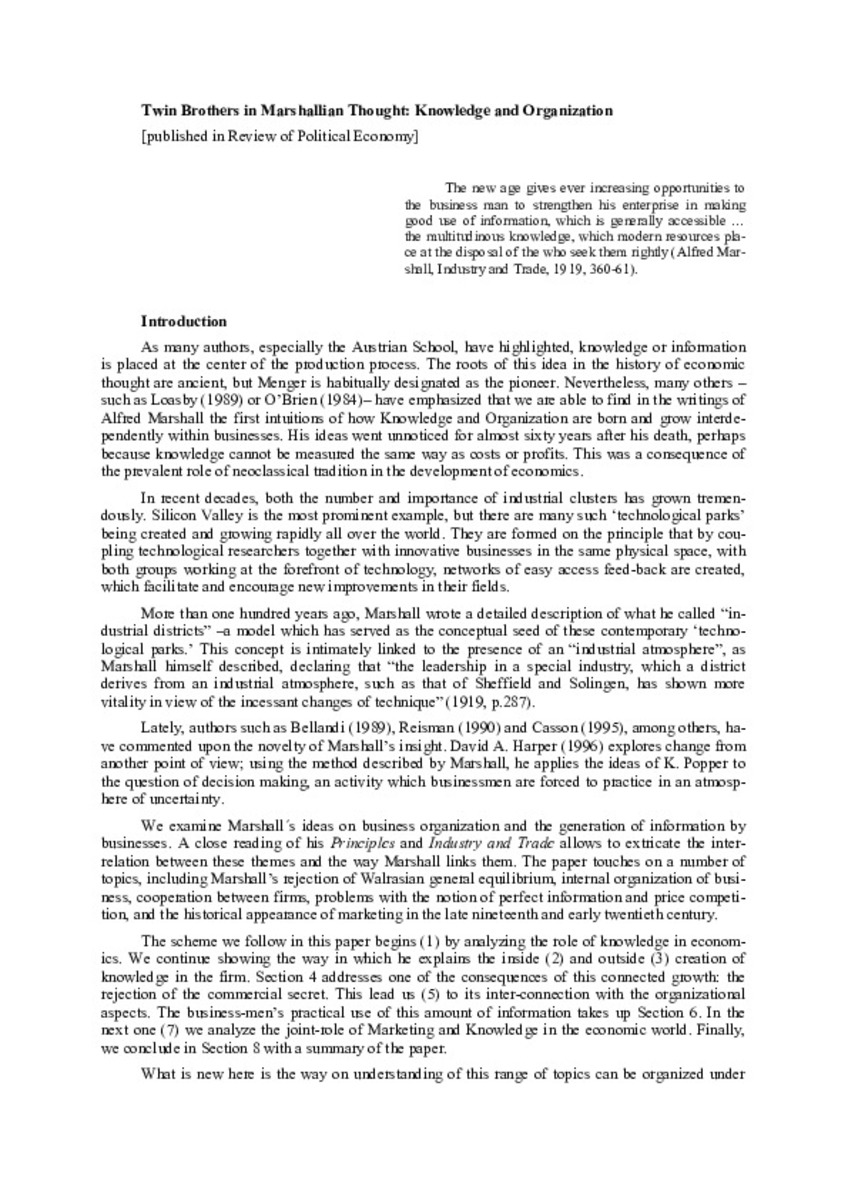Registro completo de metadatos
| Campo DC | Valor | Lengua/Idioma |
|---|---|---|
| dc.creator | Zaratiegui, J.M. (Jesús M.) | |
| dc.date.accessioned | 2009-12-22T11:44:20Z | - |
| dc.date.available | 2009-12-22T11:44:20Z | - |
| dc.date.issued | 1997 | - |
| dc.identifier.citation | Review of Political Economy, vol. 9 (3), p. 295-312 | es_ES |
| dc.identifier.issn | 0953-8259 | - |
| dc.identifier.uri | https://hdl.handle.net/10171/5549 | - |
| dc.description.abstract | Abstract: The development of Marshallian thought in the realm of business theory has con-tributed to the appearance of a new branch of economic theory: Industrial Organization, as pioneered by Stigler. This theory relies, to a large de¬gree, on the idea that a mutually beneficial relationship is produced in the indus¬trial environment between the creation of new information and the organizatio¬nal improvement of re¬lated firms. This symbiosis between knowledge and orga¬nization is the driving prin¬ciple behind the ‘industrial districts’ which Marshall announced a century ago, and is most re-cently embodied in the contemporary industrial clusters such as Silicon Valley. However, Marshall distances himself from his equilibrium model when dea¬ling with the issues of obtaining and ma¬naging information within the firm itself, creating a weak link in his own argu¬ment. | es_ES |
| dc.language.iso | eng | es_ES |
| dc.publisher | Carfax | es_ES |
| dc.rights | info:eu-repo/semantics/openAccess | es_ES |
| dc.subject | Entreprenurship, Alfred Marshall, industrial organization, knowledge | es_ES |
| dc.title | Twin Brothers in Marshallian Thought: knowledge and organization | es_ES |
| dc.type | info:eu-repo/semantics/article | es_ES |
Ficheros en este ítem:
Estadísticas e impacto
Los ítems de Dadun están protegidos por copyright, con todos los derechos reservados, a menos que se indique lo contrario.






